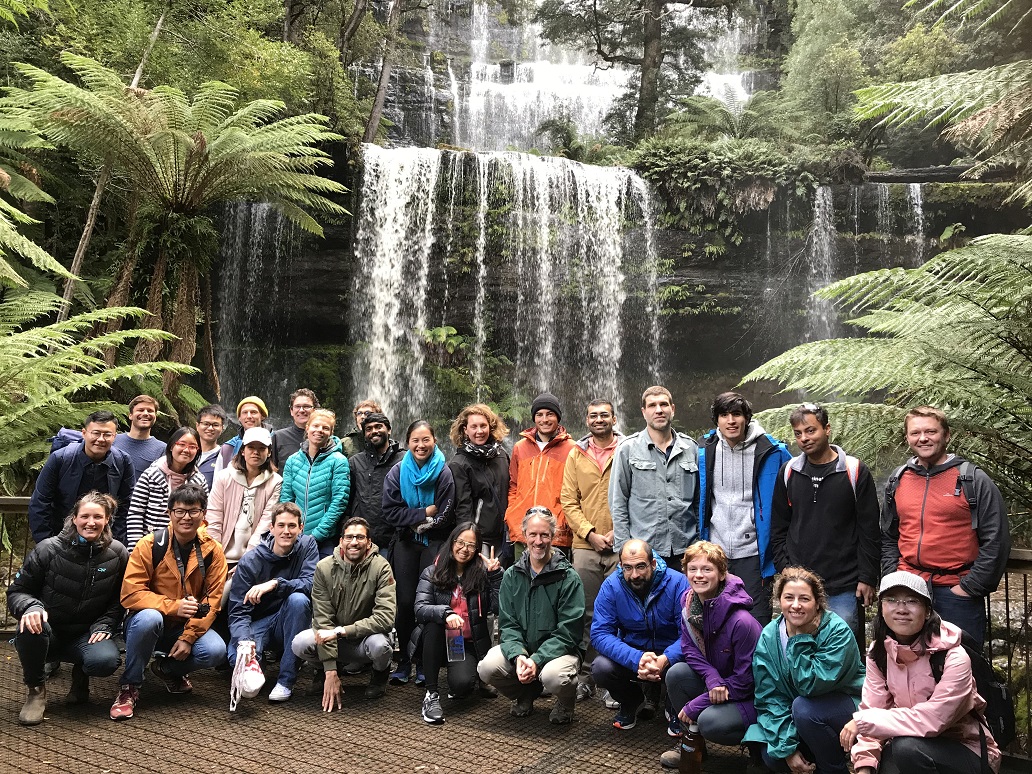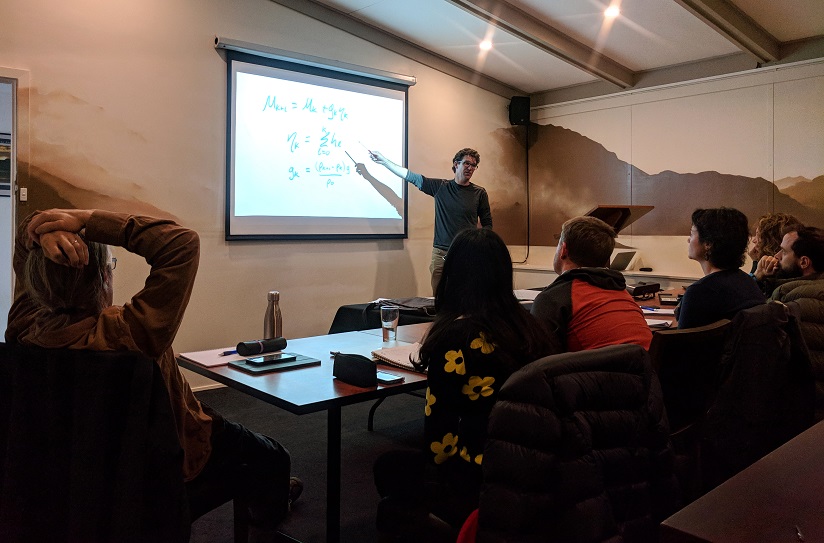

Twenty-eight PhD students and early career scientists from Australia and New Zealand last week converged on Strathgordon for an intensive workshop in ocean modelling, taught by expert model developers from around the world.
But unlike most workshops of this kind, this one was organised by the students, for the students.
“We recognised a gap in our own training,” said co-organiser Ole Richter, who organised the event along with fellow PhD students Wilma Huneke and Madi Rosevear from IMAS.
“Ocean models distil scientists’ best understanding of the ocean in a set of mathematical equations.
 “They allow scientists to solve those equations on computers,and evolve them over time to make predictions about the future,” he said.
“They allow scientists to solve those equations on computers,and evolve them over time to make predictions about the future,” he said.
But the models are complicated: there’s a lot in there.
“We want to be able to develop and improve the models, not just use them,” co-organiser Wilma Huneke said.
“The principal lecturer, Stephen Griffies, literally wrote the book, or at least a book, on this topic, and he’s a developer of one of the most popular ocean models in the world.
“To say we were excited to learn from him would be an understatement.”
Co-organiser Madi Rosevear said a secondary goal of the school was to create a close and productive community of young ocean modellers in Australia.
“That was the motivation behind the remote location,” she said.
“We’re preparing for a huge challenge.
“The ocean is part of the climate system. Changing temperatures, winds, sea ice cover, freshwater runoff from land… all of these have a huge influence on the ocean, and vice versa.
“Good models of the ocean, and our ability to ask good questions with them, will be integral to our ability to mitigate and adapt to a changing climate,” Ms Rosevears said.
The students obtained funding from the ARC-funded Antarctic Gateway Partnership, the Centre for Climate Extremes, ACE CRC and IMAS to hold the workshop and bring the lecturers to Tasmania.